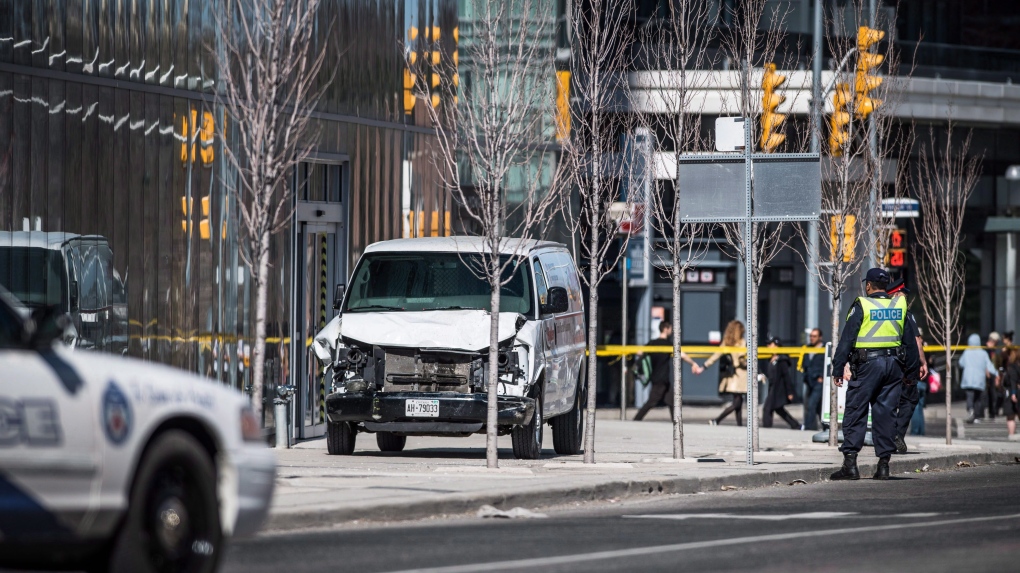The man responsible for Toronto's deadly 2018 van attack is seeking to appeal his conviction on 10 counts of first-degree murder and 16 counts of attempted murder.
Alek Minassian filed a notice of appeal to Ontario's top court this week.
In it, he argued, among other things, that the trial judge "misapprehended" expert evidence and made "unreasonable findings of fact" related to declining to find him not criminally responsible.
Justice Anne Molloy found Minassian guilty last year of 10 counts of first-degree murder and 16 counts of attempted murder for his actions on April 23, 2018. On that day, he deliberately drove a rented van down a busy sidewalk and killed eight women and two men. Another woman died more than three years later from injuries suffered that day.
MORE: Parents, siblings, friends: Remembering the lives lost in the Toronto van attack
Minassian was sentenced to life in prison with no chance of parole for 25 years last month.
- Download our app to get local alerts to your device
- Get the latest local updates right to your inbox
He requested in the notice of appeal that the appeal either be granted, that his convictions be quashed and that he be found not criminally responsible, or that the convictions be quashed and a new trial be ordered.
If a new trial is ordered and Minassian has a right to a trial by a judge and a jury, he requested that both be present -- only Molloy presided over the van attack trial that wrapped up on June 13.
During the trial, Minassian had admitted to planning and carrying out the attack, but argued he should be found not criminally responsible for his actions because of his autism spectrum disorder.
 Police are seen near a damaged van in Toronto after a van mounted a sidewalk crashing into a number of pedestrians on Monday, April 23, 2018. THE CANADIAN PRESS/Aaron Vincent Elkaim
Police are seen near a damaged van in Toronto after a van mounted a sidewalk crashing into a number of pedestrians on Monday, April 23, 2018. THE CANADIAN PRESS/Aaron Vincent Elkaim
The Crown had argued that Minassian is a mass killer who knew right from wrong, and happens to have autism. But the defence argued that because of autism, Minassian never developed empathy, and that lack of empathy left him incapable of rational choice. Molloy rejected that argument.
A Toronto courtroom also heard dozens of emotional victim impact statements from those deeply affected by the attack during the trial.
Among them was a drawing, submitted by nine-year-old Diyon, who lost his mother, Renuka Amarasingha, in the tragedy. The sketch depicted the sun shining down on the boy and his mother, which moved the court to tears.
Amarasingha, Betty Forsyth, Ji Hun Kim, So He Chung, Geraldine Brady, Chul Min Kang, Anne Marie D'Amico, Munir Najjar, Dorothy Sewell, Andrea Bradden and Amaresh Tesfamariam died as a result of attack.
With files from Liam Casey
This report by The Canadian Press was first published July 15, 2022.

Post a Comment